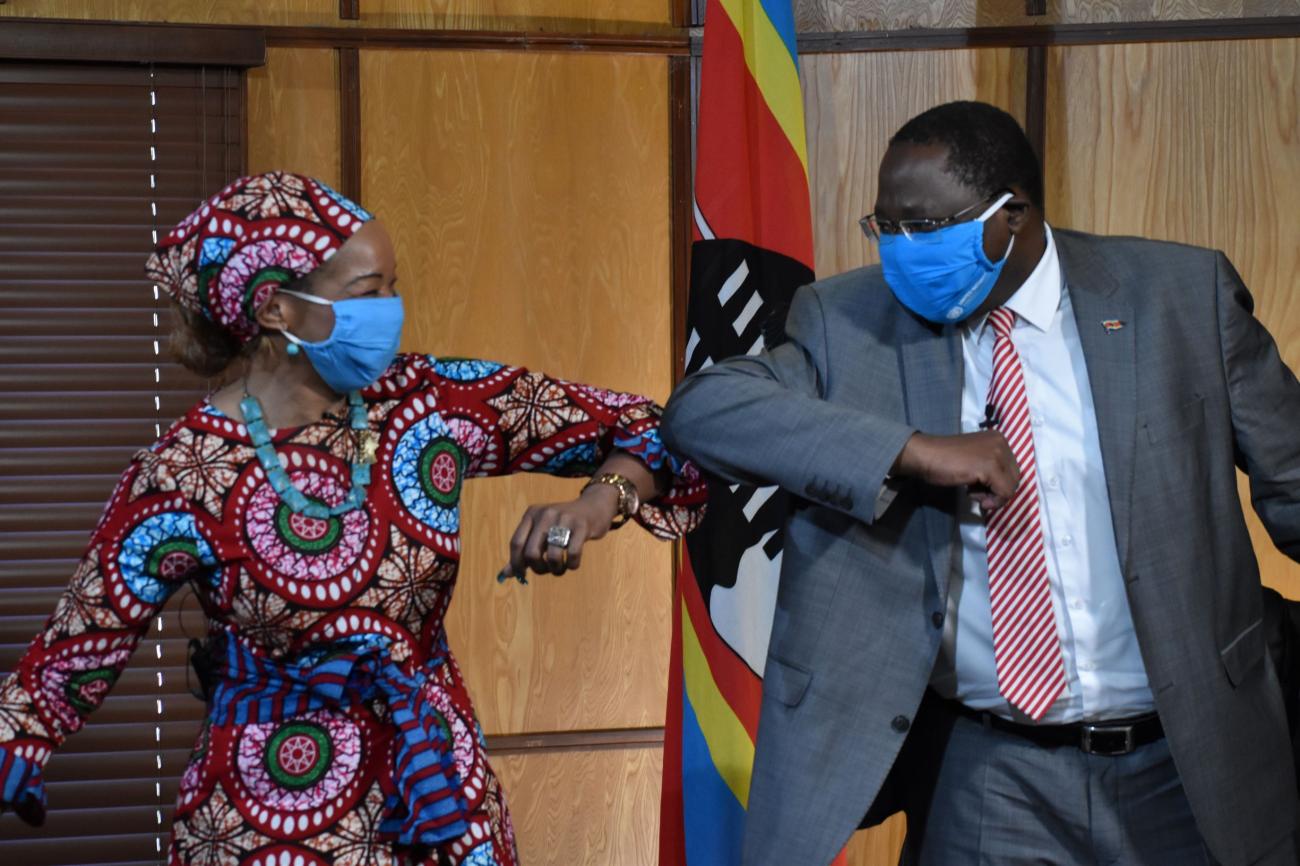Throughout the months of July and August, UN Eswatini attempted to reach some of the nation’s most important and vulnerable groups, to hear their voices on the impacts of COVID-19 on their lives, international priorities to recover better from the COVID-19 pandemic, what 2045, when the UN turns 100, might hold for Eswatini and the world, challenges to achieve this vision and how global cooperation, namely the UN, might help manage such challenges.
UN Eswatini hosted the conversations following the launch of the UN75 dialogues by the UN Secretary-General, Mr António Guterres, in January 2020; the start of the UN’s 75th anniversary. The UN Secretary-General launched the dialogues with a vision to spark conversations in all settings, by discussing our priorities as a human family and how we can build a better future for all, to ultimately emerge from the pandemic stronger and better equipped to work together.
Vulnerable groups participating in the conversations included, respectively; women in business, students and teachers at Waterford Kamhlaba, women farmers, people living with disabilities, university students and lecturers, children, youth, LGBTQI, persons living with HIV, migrants, young men and artists. So too did the UN Resident Coordinator share a dialogue with the Hon. Prime Minister, members of parliament and the media.
Central to the conversations was the impact of COVID-19 on the lives of Emaswati, with students stating that; “It has affected our education process as we no longer go to school and learn online. Children who live under the poverty line don’t have access to such gadgets and data to learn online.”
Participants continued to share that COVID-19 has resulted in many people becoming depressed, teenage pregnancies increasing, along with Gender-Based Violence. Livelihoods have been taken away due to the pandemic and preventative measures with many families and persons losing sources of income. Children living with disabilities are being left behind in the pandemic as education moves online; braille learning materials and physical support are thus no longer readily available.
However, participants expressed that the pandemic has created a sense of unity nationwide and worldwide with many partnerships forming. So too did young participants express that it has taught them to be innovative, bettered their personal hygiene and allowed them to nurture their passions, grow their skills and spend time with family.
Rich discussions entailed on priorities to recover from COVID-19, with the Prime Minister stating that Eswatini’s priorities would entail; “The first area is the economy; we would like to focus a lot more on implementing a strong economic recovery plan in Eswatini; reviving the economy quicker, creating jobs for more people and strengthening the private sector.
The second aspect is strengthening our health system. Investment in the health sector is critical going forward, as I said, to deal with the effects of COVID-19 and prepare the nation for future pandemics or crises. There are other crucial areas of focus such as education, young people and women’s empowerment. All of these would need to be dealt with to uplift the standards of living for the people of our nation.”
Fruitful conversations continued into the world that participants would like to see in 2045 when the UN turns 100, with one child sharing that; “I’d like to see a world in 2045 where all of the 17 Sustainable Development Goals (SDGs) are achieved; especially SDG 1 (No Poverty), because poverty causes most of the problems in the world.”
Participants, largely the business sector, continued to state that the UN might help achieve a prosperous 2045 by elevating grassroots organisations, community-based solutions with policy agendas and global movements, ensuring that the Kingdom of Eswatini is a part of crucial international agreements.
The events were live-streamed on UN Eswatini’s Facebook page with many joining in the live conversations.
Views, concerns and ideas shared by Emaswati in the dialogues will be presented to world leaders and senior UN officials at the official commemoration of the 75th Anniversary by the UN General Assembly in September 2020. Groups around the world will then discuss how best to action the priorities and proposals generated.


















